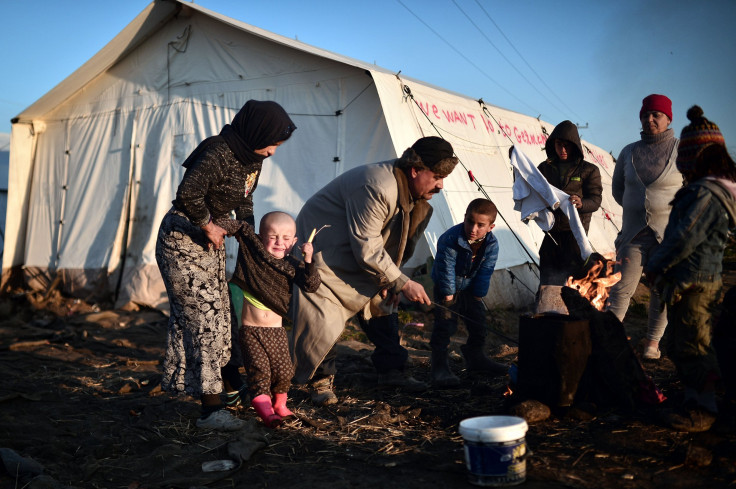EU-Turkey Deal: Greece Delays Returning Refugees, Says It Needs More Time To Implement Agreement

A deal struck between the European Union and Turkey over sending back refugees who cross the Aegean Sea into Greece was implemented on midnight Sunday, but Greek Prime Minister Alexis Tspiras said that Athens would need more time to implement it. The agreement, signed Friday, states that refugees who reach Greek islands can be sent back to Turkey on failing to apply for an asylum or if their claim is rejected.
Tspiras said, according to Deutsche Welle, that his country would need over 36 hours to implement the controversial EU deal, which has been termed inhumane by human rights groups. It was not immediately clear on how many refugees would be sent back. Under the agreement, which plans to target the main route used by the refugees to enter the EU, for every Syrian refugee returned, the EU will resettle one from a Turkish refugee camp.
“The agreement to send back new arrivals on the islands should, according to the text, enter into force on March 20,” a government official said, according to Agence France-Presse, adding: “But a plan like this cannot be put in place in only 24 hours.”
The refugee agency for the United Nations has raised questions on how the deal would work and called for urgent improvements to the refugee assessing system used by Greece, the Guardian reported. Thousands of refugees, who reached Greece before the deadline, will also be resettled in Europe under the plan, although they cannot choose the country.
Vincent Cochetel, director of the UNHCR for Europe, said, according to the Guardian, that the deal was legal on paper but questions on how the deal would be implemented remained. “For us the proof is in the pudding. Clearly the deal on paper is consistent with international law and standards. The worry is that the safeguards will not be in place on 20 March.” He added that those who had to apply for asylum, needed to access interpreters, the right of appeal and other vital elements of a working asylum system, which Greece has struggled to put in place so far.
A police official on the Greek island of Lesbos told AFP: “We still don't know how the deal will be implemented in practice,” adding: “Above all, we are waiting for the staff Europe promised to be able to quickly process asylum applications -- translators, lawyers, police officers -- because we cannot do it alone.”
German Chancellor Angela Merkel also urged refugees at the Greek village of Idomeni, which hosts 10,500 people, to move to other accommodation being offered by the country’s authorities, the Guardian reported. The report added that about 14,000 people were waiting at a bordering village, hoping to travel north.
“I want to take the opportunity to tell the refugees at Idomeni that they should trust the Greek government and move to other accommodation where the conditions will be significantly better,” Merkel said, according to the Guardian, adding that from there, “Greece will put asylum procedures in motion or redistribution to other European countries will take place.”
Merkel also estimated, according to AFP, that on a realistic basis, the refugees are not expected to be returned to Turkey until April 4.
In exchange for Turkey taking in refugees, Ankara can expect “re-energized” talks on its membership to the bloc, along with a promise of negotiations on one policy area to start before July, according to the Guardian. Turkish Prime Minister Ahmet Davutoğlu said that Friday was “a historic day” for EU-Turkey relations.
By Saturday, about 47,500 refugees were present in Greece, including 8,200 on the islands. Over a million asylum-seekers entered Europe last year, triggering the biggest refugee crisis in the region, while about 4,000 people have drowned trying to cross the Aegan Sea, AFP reported. Of the 4,000, about 400 people drowned this year alone.
© Copyright IBTimes 2025. All rights reserved.






















